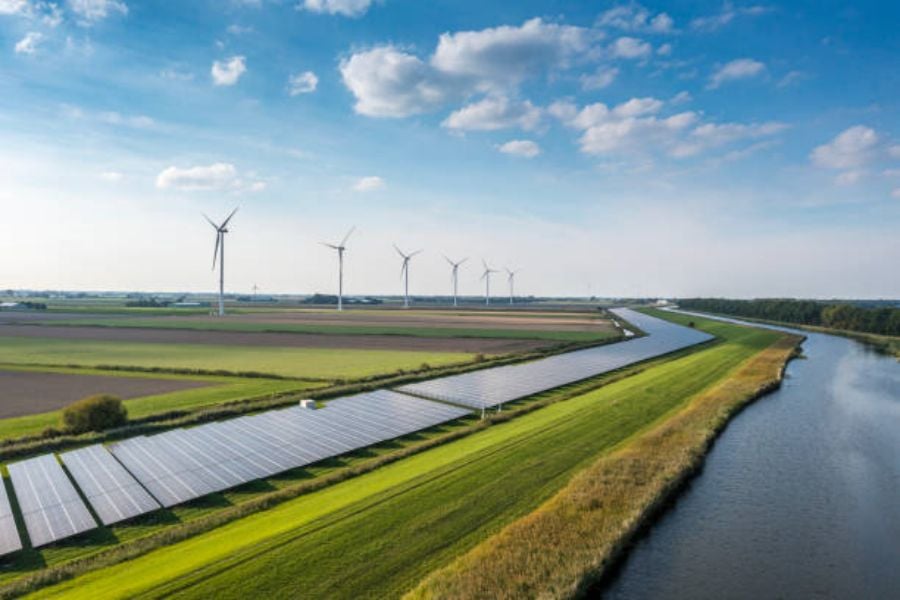Introduction
As renewable energy becomes an increasingly popular choice for powering homes and businesses, the demand for solar panels continues to rise. In recent years, there has been a significant advancement in solar panel technology, including the development of flexible monocrystalline solar panels. These innovative panels offer numerous advantages over traditional solar panels, making them a compelling option for those looking to harness the power of the sun. In this article, we will explore the various benefits of flexible monocrystalline solar panels and why they are an ideal choice for renewable energy enthusiasts.
1. Enhanced Efficiency
Flexible monocrystalline solar panels are known for their high energy conversion efficiency. The monocrystalline silicon cells used in these panels have a single, continuous crystal structure, which allows for more efficient electron movement and a higher power output. This means that flexible monocrystalline solar panels can generate more electricity from the same amount of sunlight compared to other types of solar panels. With their enhanced efficiency, these panels are an excellent choice for maximizing the energy harvest from limited roof space or areas with less sunlight.
2. Lightweight and Portable
Unlike traditional solar panels, which are rigid and bulky, flexible monocrystalline solar panels are lightweight and portable. They are made using thin and flexible materials, such as polymers or metal foils, which allows them to be easily transported and installed in various locations. This portability makes flexible monocrystalline solar panels an ideal choice for applications such as camping, RVs, boats, and other remote or off-grid locations where traditional solar panels may not be practical.
3. Versatile Installation Options
Flexible monocrystalline solar panels offer greater versatility in terms of installation options. Their flexibility allows them to be mounted on curved surfaces, such as rooftops with irregular shapes or even on vehicles with curved surfaces. This flexibility enables solar panel installation in spaces where traditional rigid panels would not fit or may require complex mounting systems. Additionally, flexible monocrystalline solar panels can be easily integrated into building materials, such as roofing tiles or facades, offering seamless and aesthetically pleasing solar solutions.
4. Durability and Resistance
Flexible monocrystalline solar panels are designed to withstand various environmental conditions. They are built to be highly durable and resistant to impact, hail, and other potential damages. The materials used in these panels have excellent weather resistance, ensuring that they can withstand exposure to rain, snow, and extreme temperatures without compromising their performance. This durability makes flexible monocrystalline solar panels a reliable choice for long-term use in diverse climates and challenging environments.
5. Easy Maintenance
Maintaining flexible monocrystalline solar panels is relatively simple compared to other types of solar panels. The smooth and flexible surface of these panels makes them easy to clean, as dirt and debris can be easily washed away with water. Additionally, the lack of complex mounting systems simplifies maintenance procedures. Regular visual inspections and occasional cleaning are usually sufficient to keep flexible monocrystalline solar panels operating at their optimal level, resulting in minimal maintenance costs and efforts.
6. Cost-Effectiveness
While the initial cost of flexible monocrystalline solar panels may be slightly higher compared to traditional solar panels, their long-term cost-effectiveness should not be overlooked. The enhanced efficiency of these panels means that they can generate more electricity with fewer panels, reducing the overall installation cost. Additionally, their lightweight and portable nature can lead to savings in transportation and installation expenses. Furthermore, the durability and low maintenance requirements of flexible monocrystalline solar panels contribute to their cost-effectiveness over their lifespan, making them a wise investment for long-term energy savings.
7. Environmental Benefits
Choosing flexible monocrystalline solar panels contributes to a cleaner and greener environment. By harnessing the power of the sun, these panels generate clean and renewable energy, reducing dependence on fossil fuels and minimizing greenhouse gas emissions. The manufacturing process of flexible monocrystalline solar panels also has a lower environmental impact compared to traditional panels, as it requires less energy and produces fewer harmful byproducts. By opting for flexible monocrystalline solar panels, individuals and businesses can actively contribute to mitigating climate change and promoting sustainability.
8. Increased Design Flexibility
The flexibility of monocrystalline solar panels opens up new possibilities for solar panel design and integration. Their ability to conform to various shapes and surfaces allows for more creative and aesthetically pleasing solar installations. Whether it's integrating solar panels into architectural designs or creating innovative solar-powered products, the design flexibility offered by flexible monocrystalline solar panels allows for greater integration of renewable energy solutions into our daily lives.
9. Future Technological Advancements
Flexible monocrystalline solar panels are still a relatively new technology, and ongoing research and development are leading to continuous advancements in their efficiency and performance. As the demand for renewable energy increases, manufacturers are investing in the improvement of flexible solar panel technology, which will likely result in even more efficient and affordable options in the future. Embracing flexible monocrystalline solar panels now positions individuals and businesses at the forefront of this evolving technology.
10. Conclusion
Flexible monocrystalline solar panels offer a range of advantages that make them an excellent choice for those seeking efficient, portable, and versatile solar solutions. With their enhanced efficiency, lightweight design, and durability, these panels are suitable for various applications and climates. The cost-effectiveness, environmental benefits, and design flexibility further solidify their appeal. As technology continues to advance, flexible monocrystalline solar panels are poised to play a significant role in the transition towards a sustainable future.

